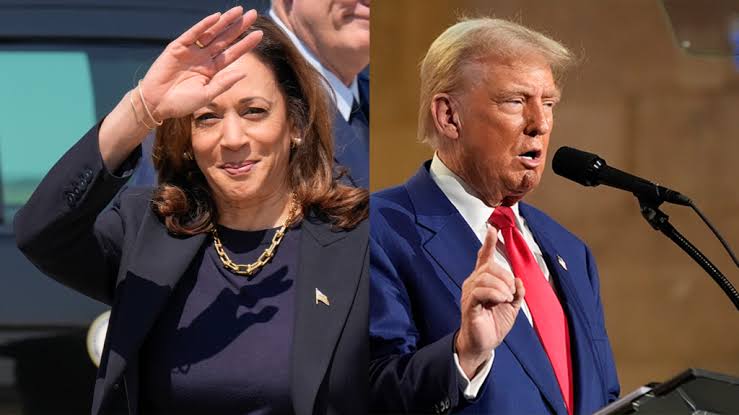
In today’s polarized political landscape, few issues spark more heated debate than the perceived double standards applied to politicians based on their party affiliation. The contrasting treatment of Vice President Kamala Harris and former President Donald Trump epitomizes this phenomenon, and many argue that the disparity has reached a breaking point that demands scrutiny and discussion.
The Background
Kamala Harris, as the first female Vice President and the first woman of Black and South Asian descent to hold the office, has become a figure of both empowerment and scrutiny. Her every move is closely monitored, and criticisms often focus on her identity rather than her policies. In contrast, Donald Trump, whose presidency was characterized by controversial statements and policies, seems to evade the same level of scrutiny from his supporters, who often dismiss allegations and criticisms as “fake news.”
The Different Standards of Accountability
The concept of accountability in politics is essential for a healthy democracy. However, the application of this accountability often seems to vary dramatically based on political affiliation. For example, when Harris faced backlash over her handling of the border crisis, critics were quick to label her as ineffective and out of touch. Conversely, during Trump’s presidency, numerous scandals—from the Ukraine phone call to the January 6 insurrection—were met with partisan defenses that downplayed their significance.
Critics argue that this disparity undermines genuine discourse about policy and governance. While Harris’s critics focus on her race and gender as factors influencing her decisions, Trump’s supporters frequently frame his controversial actions as merely a reflection of a political outsider challenging the status quo. This selective interpretation of accountability creates an environment where political figures are judged not by their actions but by the partisan lens through which they are viewed.
Media Coverage: A Discrepancy in Narrative
Media coverage further amplifies this double standard. Coverage of Harris often centers on her identity, portraying her through the lens of her gender and ethnicity, while Trump’s media portrayal tends to emphasize his business acumen and outsider status. This bias not only affects public perception but also influences how each is held accountable for their actions.
For instance, when Harris was criticized for her comments about the need for reform in the criminal justice system, the media response was swift and critical. However, when Trump made incendiary remarks that incited violence, the media landscape became fractured, with many outlets minimizing the impact of his words or framing them as typical political rhetoric. This inconsistency in coverage leads to a distorted public understanding of both figures and their respective responsibilities.
Implications for Political Discourse
The implications of this double standard extend beyond individual politicians; they shape the overall political discourse in the United States. When one party’s leaders are subjected to intense scrutiny while the other party’s figures are largely excused, it fosters a toxic environment where partisan loyalty supersedes factual analysis.
This dynamic not only alienates moderate voters but also discourages healthy debate about policy. If politicians feel they can operate without fear of accountability, it undermines the principles of democracy and governance. Both sides of the political spectrum must confront the reality of their biases to restore faith in political accountability.Public Response and the Path Forward
The public is beginning to recognize this disparity, leading to growing frustration on both sides. Grassroots movements and independent organizations are pushing for a more equitable evaluation of political figures, advocating for a return to accountability that transcends party lines.
A pivotal moment could arise if voters demand transparency and consistency in how politicians are held accountable. This shift could lead to a healthier political environment, encouraging leaders to prioritize the needs of their constituents over party loyalty.
Conclusion
The double standard applied to Kamala Harris and Donald Trump highlights a critical issue in contemporary American politics. As public awareness of this disparity grows, it poses a significant challenge to the integrity of democratic discourse. For the political system to function effectively, it is essential for all leaders, regardless of party affiliation, to be held to the same standards of accountability. Addressing this issue is not just about fairness; it is about fostering a political culture that encourages integrity, transparency, and meaningful dialogue. The time has come for voters and leaders alike to confront this double standard head-on, demanding a political environment that reflects the principles of justice and equity.






